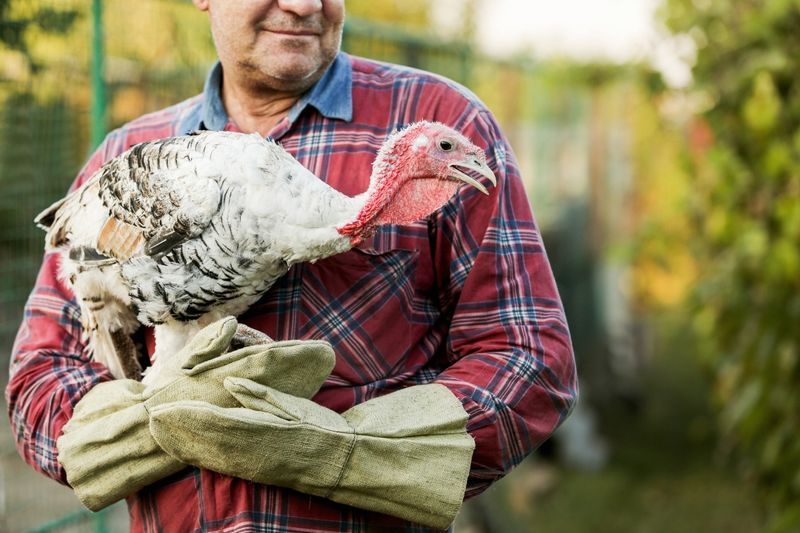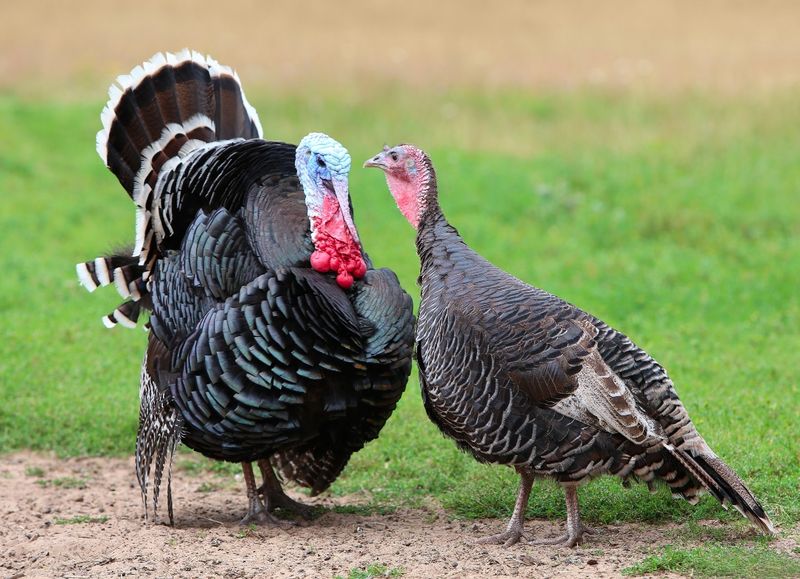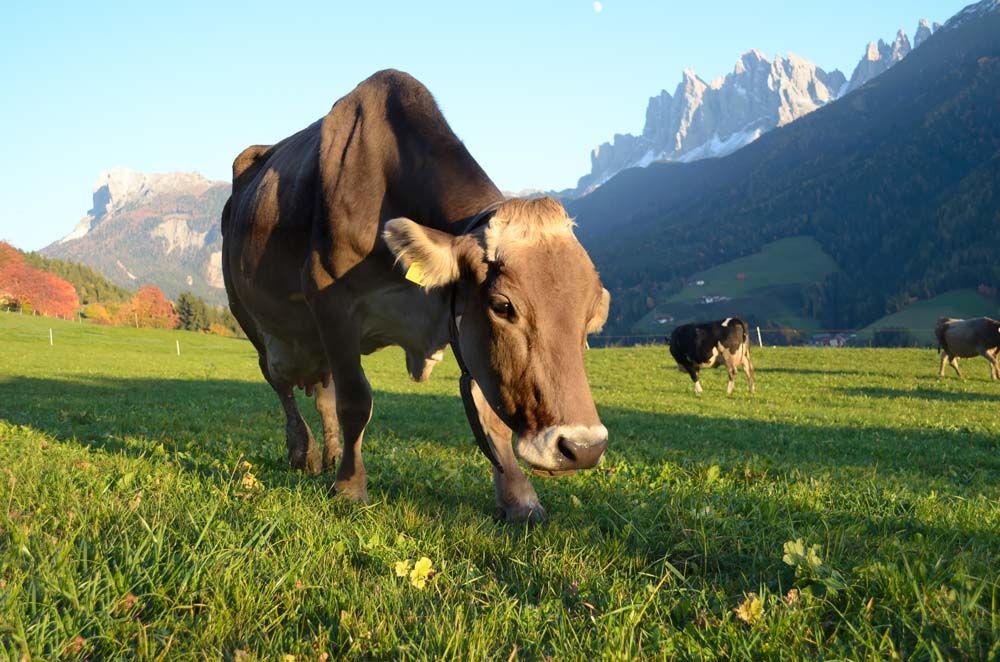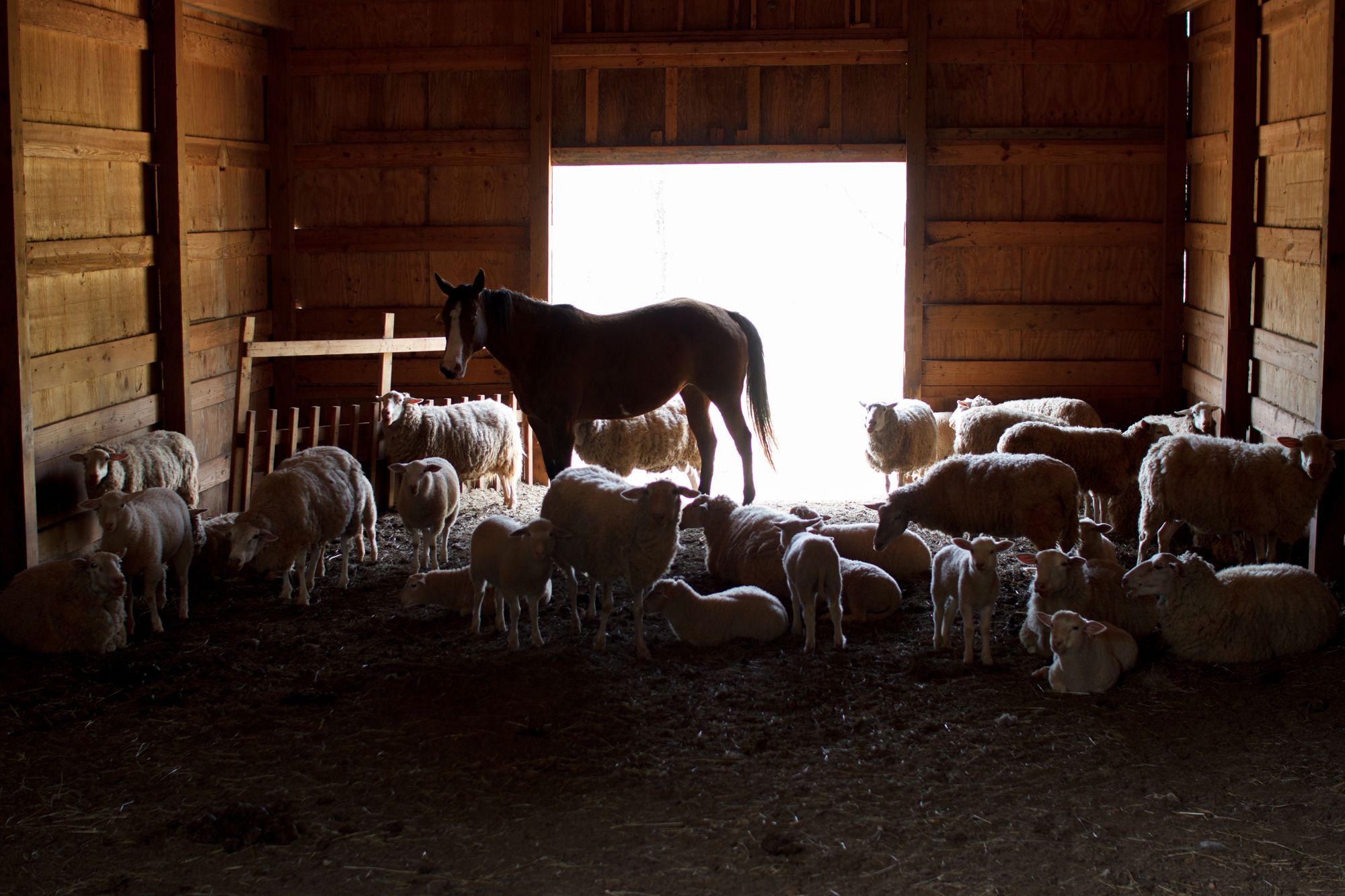Talking Turkey
Birds Beyond the Holiday Table


When most people hear the word turkey, they think of the holiday centerpiece on a platter. But ask anyone who raises them, and you’ll hear a very different story: turkeys are curious, social, intelligent and surprisingly charming farm companions. They are far more than a seasonal dish — they’re feathered personalities with quirks that make them unforgettable.
In fact, Benjamin Franklin famously admired the wild turkey so much that he considered it “a more respectable bird” than the bald eagle. Spend some time with a flock, and you’ll quickly see why.
Fun Facts That Might Surprise You
- Gobbling is seasonal. Only male turkeys gobble, and they use it primarily in spring to attract hens. The iconic sound isn’t a year-round trait, but when it happens, it can be heard up to a mile away!
- Excellent vision. Turkeys can see three times better than humans, with almost a 270-degree peripheral vision. They can also see in color and detect movement instantly.
- They blush. The fleshy caruncles on a turkey’s head and neck shift colors — from pale pink to bright red to even blue — depending on mood and excitement.
- Dust bath devotees. Turkeys, like chickens, maintain feather health by rolling in dirt. A well-used dusting pit is a sign of a content flock.
- Lifespan and memory. With proper care, domestic turkeys can live up to 10 years. They also have impressive memories, often recognizing caretakers and routines.

Personality Quirks: Big Birds, Bigger Characters
Turkeys have a reputation for being goofy — and there’s some truth to that. They’re naturally curious and will follow you around like farmyard shadows. Many owners describe them as “puppy-like” in their loyalty and desire for attention.
Turkeys have a reputation for being goofy – and there’s some truth to that.
Toms (males) can be territorial, particularly in breeding season, strutting with fanned tails and puffed-up feathers. It’s an impressive display, but most of the time it’s more bark than bite. Hens, on the other hand, are nurturing and calm, often doting on poults (turkey chicks) and keeping order in the flock.
Many owners describe turkeys as “puppy-like” in their loyalty and desire for attention.
One quirk that surprises first-time keepers: turkeys love to “talk.” From chirps to purrs to yelps, they have a wide range of vocalizations. Some even respond to their names or mimic certain sounds, adding a whole new level of entertainment to the barnyard.
Care Tips for Happy, Healthy Turkeys
Raising turkeys isn’t complicated, but they do have a few unique needs compared to chickens or ducks. Here’s what every new turkey keeper should know:
- Brooding Poults:Turkey poults are delicate in their first few weeks. They need a warm, draft-free brooder with a steady heat source and high-protein starter feed (around 28%). Many new keepers lose poults due to improper brooding, so patience and attention to detail in this stage are critical.
- Housing & Space: Turkeys are larger and more active than chickens, so they require more room to roam. Each adult bird should have at least 10 square feet inside and 25 to 30 square feet in an outdoor run, though free ranging is even better.
- Fencing & Safety: Turkeys can fly — sometimes impressively high and far. Wing clipping or secure fencing keeps them safe from predators and prevents them from wandering. A covered run is especially helpful in areas with hawks.
- Feed & Nutrition: While turkeys will forage for greens, bugs and seeds, a quality commercial feed designed for turkeys or game birds ensures proper protein levels for growth and feather health. Always provide fresh water, as turkeys can be messy drinkers.
- Social Needs: Turkeys thrive in groups and form strong social bonds. A lonely turkey is often a sad turkey, so plan to raise at least a pair or small flock.
- Seasonal Health Checks: Keep an eye out for parasites (internal and external) and respiratory issues, particularly in humid climates. Regular dusting baths, clean housing and rotation of pasture areas reduce most risks.

More Than Just a Holiday Bird
Turkeys remind us that livestock is not just about utility but also about connection. They bring humor, companionship and even a bit of unexpected elegance to the homestead. Yes, they’ll still be part of Thanksgiving tradition, but to their keepers, they are also friends, lawn ornaments and conversation starters.
Raising turkeys invites you into a long-standing relationship humans have had with these birds — one built on respect, stewardship and a little bit of laughter at their goofy quirks.
So, the next time you hear a gobble echo across a field, don’t just think of the holiday table. Think of the proud tom strutting in the sunshine, the hen softly clucking to her poults and the farmer smiling at a bird that’s as full of personality as it is tradition.
Tags:Country Critters

Acreage Life is part of the Catalyst Communications Network publication family.
















